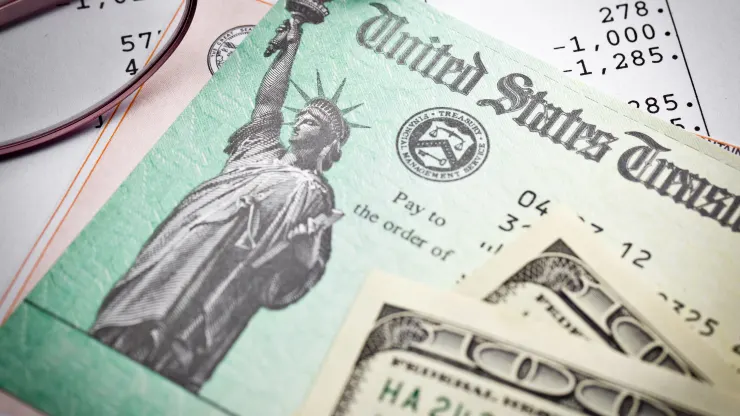Despite falling inflation, many Americans are still struggling financially and will need their annual tax refund to help cover the basics.
Some 30% of Americans overall say they will rely on their tax refund to make ends meet, according to a survey released Wednesday by Credit Karma, which polled roughly 1,000 U.S. adults in early December. The percentages were even higher for Gen Zers and millennials, 40% and 46% of whom, respectively, say they will depend on the payment.
“Nearly three-quarters of Americans are expecting a tax refund this year and for many it will be the most significant financial windfall of their year,” said Courtney Alev, consumer financial advocate at Credit Karma.
While many Americans count on yearly tax refunds, financial difficulties may be greater this season after a year of soaring costs.
Annual inflation fell to 6.5% in December, the U.S. Bureau of Labor Statistics announced on Thursday. While prices are dropping, annual inflation remains at the highest level in decades.
Meanwhile, the IRS has warned taxpayers that refunds may be smaller in 2023 now that many pandemic-era tax breaks, such as bigger child tax credits or more generous charitable deductions, have expired. In 2022, the average refund was $3,176 as of Oct. 28, according to the IRS, up nearly 14% from $2,791 in 2021.
How to get a faster tax refund
If you’re banking on getting a tax refund, financial experts say there are a few ways to avoid issues that may delay the process.
John Loyd, a certified financial planner and owner at The Wealth Planner in Fort Worth, Texas, urges taxpayers to file electronic returns. “There’s a saying in the tax world,” he said. “Any time you mail something to the IRS, you want to assume that it’s going to get lost.”
While the agency typically issues tax refunds within 21 days, paper-filed returns may take longer to process. “Taxpayers should prepare to file electronically and choose direct deposit for their tax refund,” the IRS said in a news release.
Loyd said tax return errors are another reason for processing delays. Incorrect personal information, such as your Social Security number or mismatching data from tax forms, may take extra time to resolve.
The tax season opens for individual filers on Jan. 23, the IRS announced Thursday.

